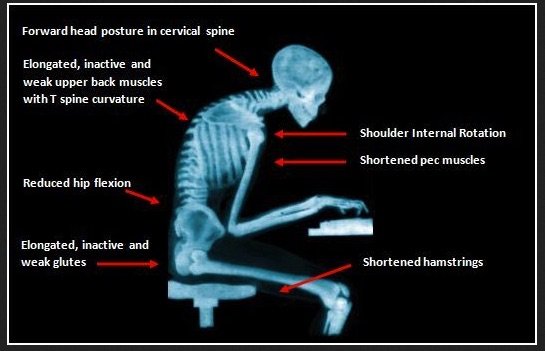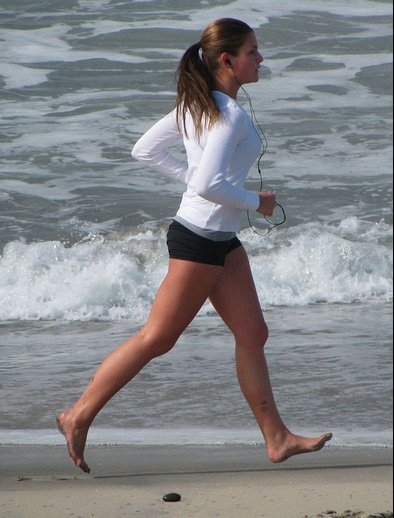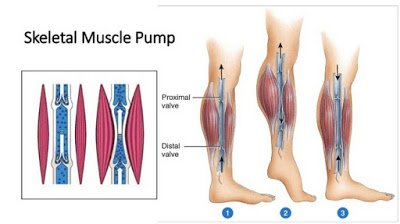You can develop good judgment as you do the muscles of your body, by judicious, daily exercise.
~ Grantland Rice
Any Journey Starts with that First Step
Five years I embarked on a journey of self-discovery when a friend of mine and fellow yogini suggested I read Katy Bowman's work. I was having difficulty with my ageing students inability to do the simplest asana (yoga postures). They were stiff and having a hard time getting up and down off the floor. Of course, I didn't want to hurt them, so I felt very limited and received the best suggestion for my situation.
Katy Bowman is a biomechanist. She is a well studied/researched individual who found herself injured and in pain (in her 20's) following the "correct" exercises to stay fit. While attending graduate school, she would run for an hour in the morning, then teach several aerobics classes afterwards. Back pain and other injuries should not have been an issue for her and her athletically minded school friends - but it was. Katy was driven to find out why.
My People
I find joy and inspiration from someone who has a burning question who then spends decades discovering the potential cause of the problem. Katy now teaches and writes about "nutritious movements." Since our culture has a tendency to sit for most of our waking hours - maybe fitting in an hour or two of exercise - we now have diseases due to very little time moving but also due to a loss of diversity of movements.
Diversity is Key to a Healthy Lifestyle
If you, like most people, sit in a chair for decades - your body will adapt, save energy, and mold into that shape. Period. All your tissues not used will atrophy. Muscles that help pump fluids through the body by you using them will no longer be strong and supple but tight and weak. Your heart will be forced to work harder. When you stand up from a seated position, your body will still have the residue of the previous posture. The head may be forward slightly, especially if you collapse your chest when you are at the computer. How you sit in a chair is going to reflect what your body looks like when you are standing.
Do you tuck your tailbone when you sit? The you are flattening your lower back causing compression on the vertebral discs which may cause you pain now or in the near future. You are also sitting on your lower pelvic organs - which could cause a prolapse over time due to the constant compression without a change in your body's geometry (posture in relation to gravity).
Remember: It's not so much the position you are in but the duration that counts, especially decades of sitting.
There is Hope!
Now please don't think that there isn't a solution to this dilemma. Maybe you have heard about standing desk stations - well great. But don't think that standing for 8+ hours at your work will immediately protect you from seated ailments.
Again, we need to think about what we do the bulk of our day that counts. Standing or sitting for 10+ hours in about the same body configuration is the problem.
We have lost our diversity of movement and removed walking almost completely from the equation. Somehow we need to add those nutritious movement ingredients to our life's recipe for a healthier lifestyle approach.
What Next?
What body positions are you in during a 24 hour period? Write it down over a 7 day time period.
How many hours are you in a seated position in a chair, not omitting being seated while driving/passengering in a car (or other modes of transport like biking)?
Do you ever choose to sit on the floor?
How much time do you spend walking daily?
Any uphill/downhill miles?
Are there any stairs that you choose to take instead of the elevator?
Are there opportunities for varied terrains other than the flat surfaces in homes and on concrete pavements?
*Do you ever walk barefoot?
*What are your activities during the weekends?
Check in with yourself and the activities that you choose and why. Do you seem to choose activities where there is a lot of car driving (sitting) and then sitting to watch a concert or movie?
It's nice to take an assessment of the habits we have formed over the years without questioning why we don't vary very often. Now might be a great time to make some slight changes that will have profound effects when practiced daily.
Just walking every day can improve digestion, increase range-of-motion, move all the fluids to and from the organs the way we were designed to function which in turn improves our overall body's health. It's a win-win!!
One Step at a Time
If you spend the bulk of your waking hours in a chair, it might be time to change your habits.
Try this:
*Every 50 minutes you are at a desk, stand up for 10 minutes to round out the hour.
*If you can, walk around. Move your limbs.
*If there is a window available then look out at the farthest point and keep the gaze for 2 minutes. Now you have exercised your eye muscles, which have adapted to your computer screen and the walls (short distances vs. long distances) in your workspace.
Great job! Keep that up for a month and see how you feel. It will take your tissues time to adapt to your new demands but you should feel better, more alert, and able to adapt more to changes in your posture.
Can you fit walking into your normal routine? Is the grocery store close? Bring your family members or friends along for the outing. Maybe you will need to make several trips per week due to the loads (the weight of the groceries) being added to body - but you needed groceries and the walk, so why not combine the two? You get stronger in the process and potentially gain some wonderful memories while hanging out with family and friends.
Tissues Need time to Adapt
I always appreciate the enthusiastic student who wants results sooner than later. I get it. Like with any change, everything takes time. The tissues in the body need time to adjust to the new movements. They will adapt faster if you do short intervals multiple times a day. No one jumps off a well worn couch and immediately runs a marathon.
Go for short walks. Increase the duration over time. Sit on the floor daily. Find ways to move more and sit less.Your healthy lifestyle is achievable by just using your body more.
This approach seems so simple. And if it weren't for my friend's suggestion to read about this "nutritious movements" concept put forth by Katy Bowman, I might still be a little perplexed about how to teach my students yoga. Now my classes are less about yoga postures and more about how to live better by moving more. I've seen the positive results in my own body as well as my students.
Sometimes the most profound, life changing events start with a question. Never be afraid to ask, and be patient. The answers are there for those that seek the truth.
Good luck!!



